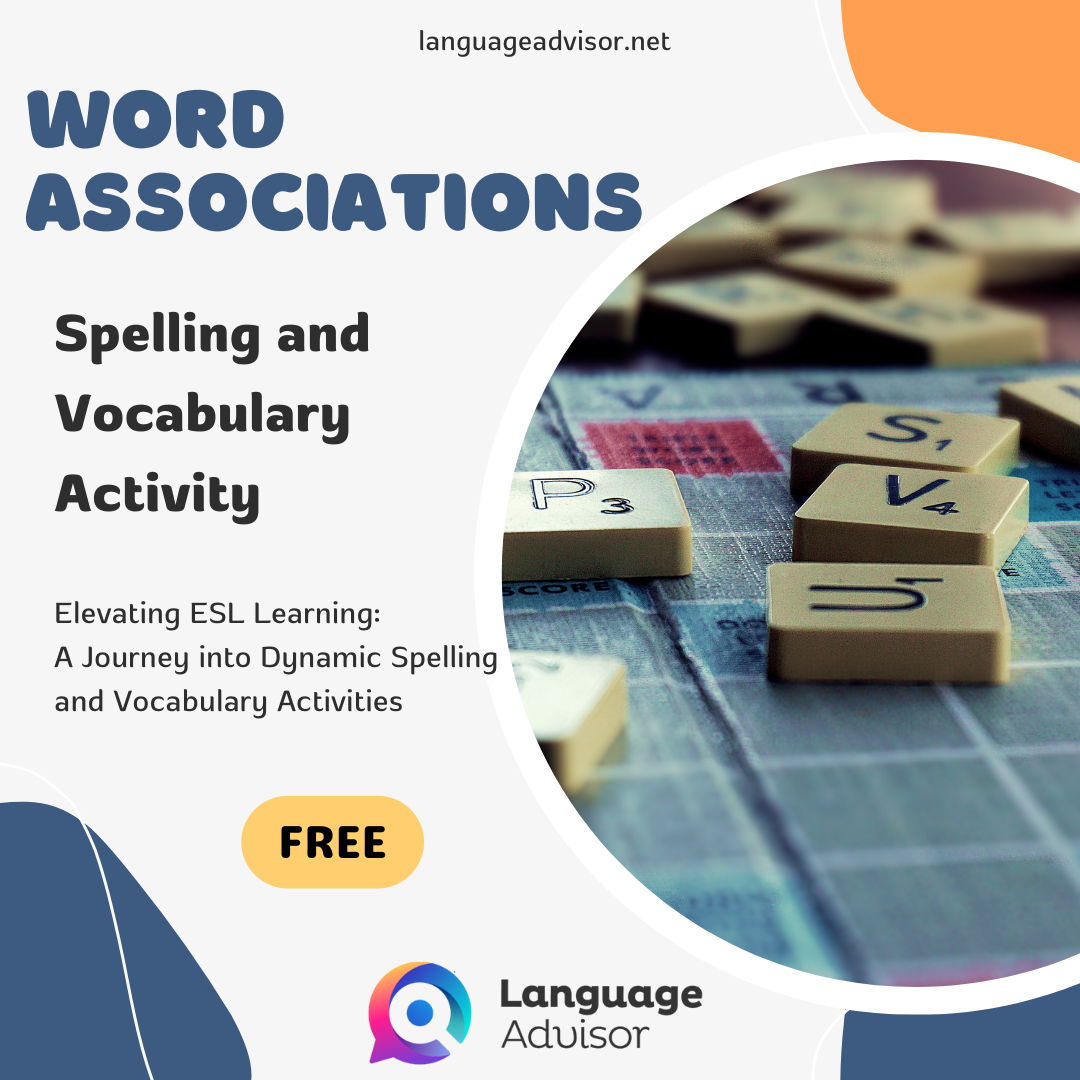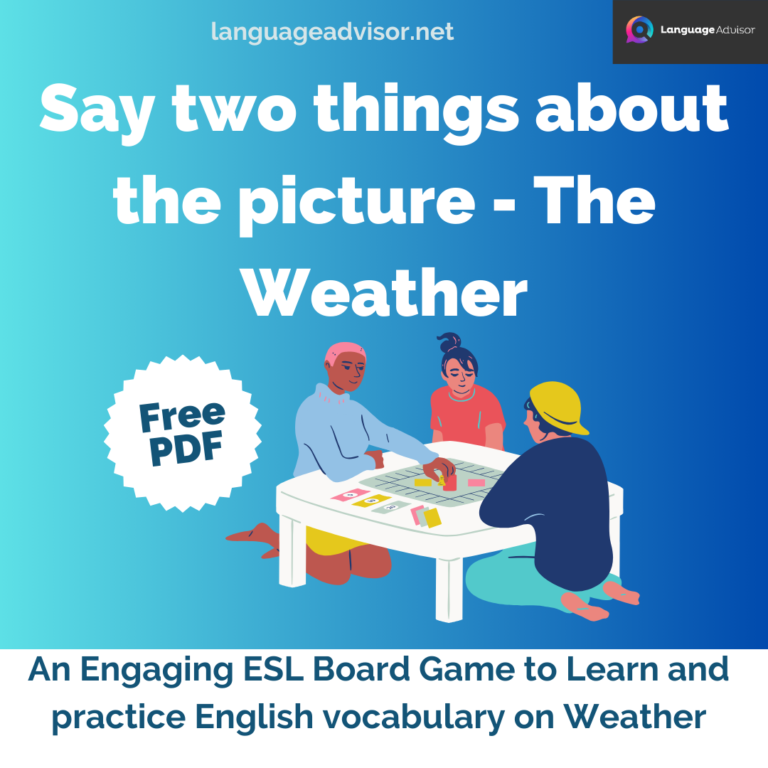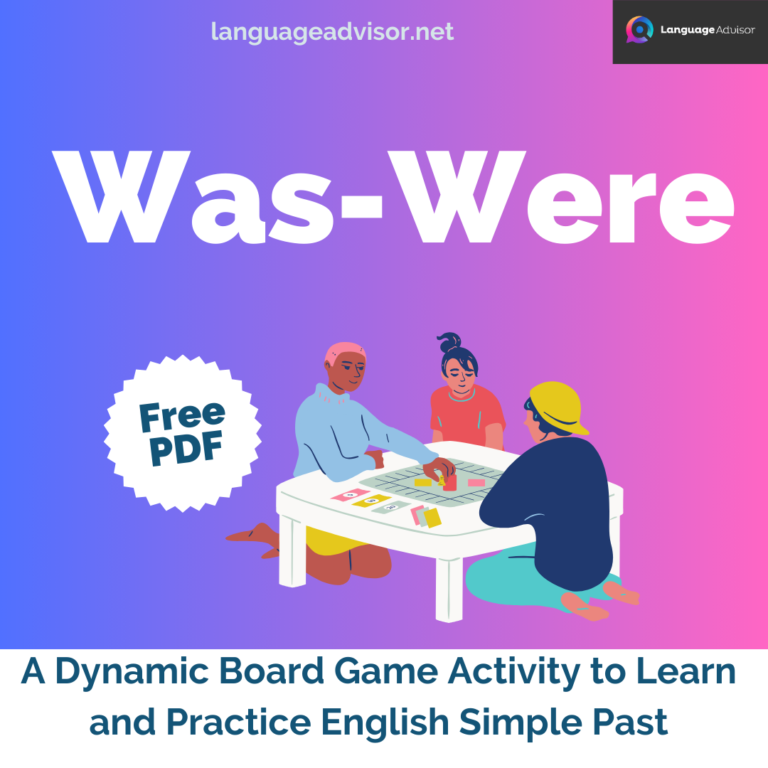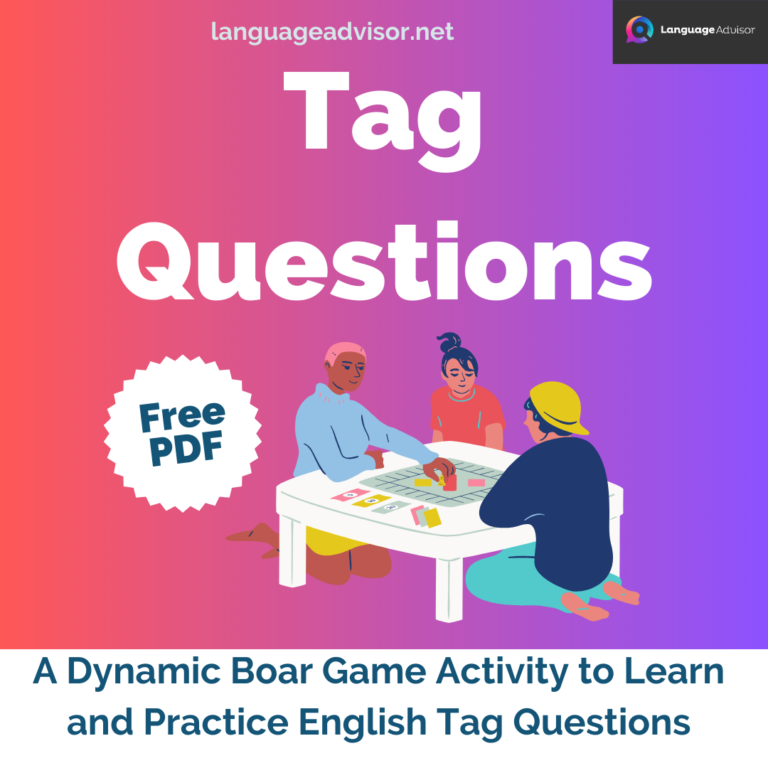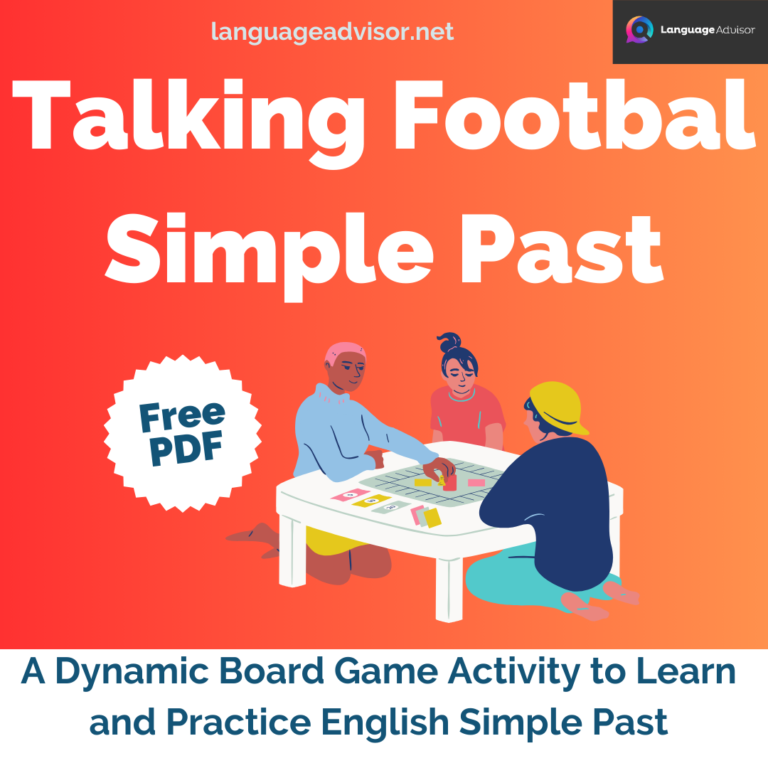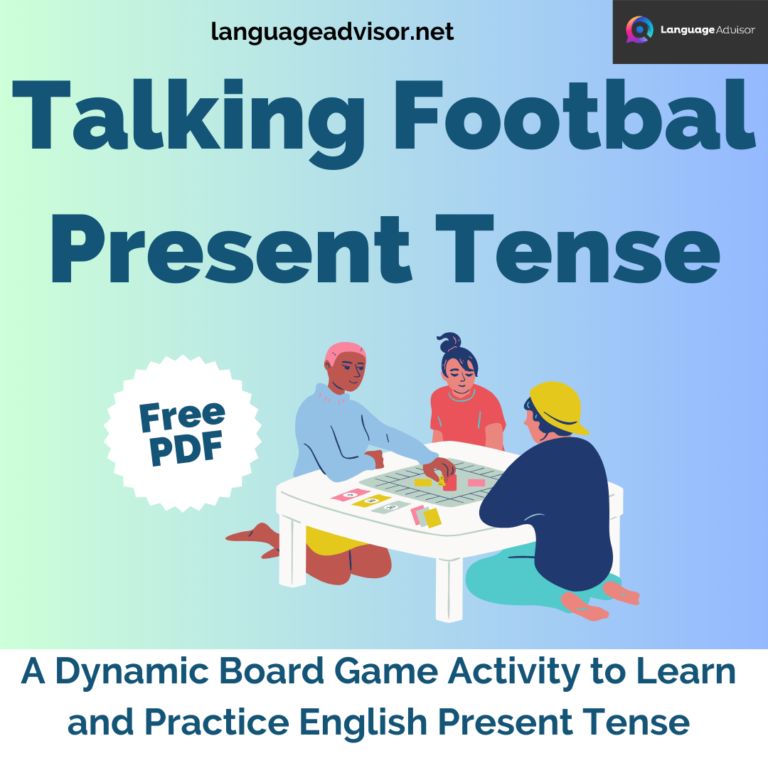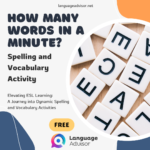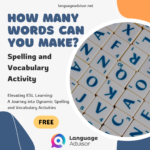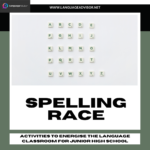WORD ASSOCIATIONS- Spelling and Vocabulary Activity. Elevating ESL Learning: A Journey into Dynamic Spelling and Vocabulary Activities
WORD ASSOCIATIONS – Spelling and Vocabulary Activity

Spelling and Vocabulary Activity
In the ever-evolving landscape of English as a Second Language (ESL) education, educators are constantly seeking innovative approaches to captivate students’ attention and deepen their understanding of the intricacies of language. One cornerstone of linguistic proficiency lies in the mastery of spelling and vocabulary. In acknowledging the dual significance of these language components, it becomes evident that they not only pave the way for effective communication but also serve as fundamental building blocks for overall language fluency.
In this blog post, let’s dive into a singular, immersive spelling and vocabulary activity that aims to inject vitality into ESL classrooms. Going beyond traditional approaches, we will explore a creative strategy that not only enhances language skills but also infuses an enjoyable element into the learning process. Through a unique combination of word puzzles, interactive games, digital platforms, and collaborative storytelling, this holistic activity is carefully crafted to transform the journey of mastering spelling and expanding vocabulary into a thrilling and fruitful endeavor for both educators and learners alike.
Take a look as we explore linguistic discovery, unlocking the potential for a more vibrant and effective ESL learning experience.

WORD ASSOCIATIONS
DESCRIPTION
Decide on a topic for any kind of word association, e.g. WINTER, SPRING, SUMMER, AUTUMN.
You say a word associated with one of the seasons (e.g. swimming). A student should answer, “SUMMER.” This can be played using many examples and applying them to a sentence or grammar pattern.
Example: “Do you go skiing in the winter?” “What do you do in the summer?”.
OPTIONS
For high level students, you can give the topic (e.g. WINTER) and each student must give a word related to that season. The topic can be changed for each row of students.
MATERIALS
Blackboard & chalk/ Whiteboard and Markers, pencil & paper.
WORD ASSOCIATIONS – REMARKS
It can be a good warm-up activity.

Also check out these articles on teaching, teaching methods and teaching tools


